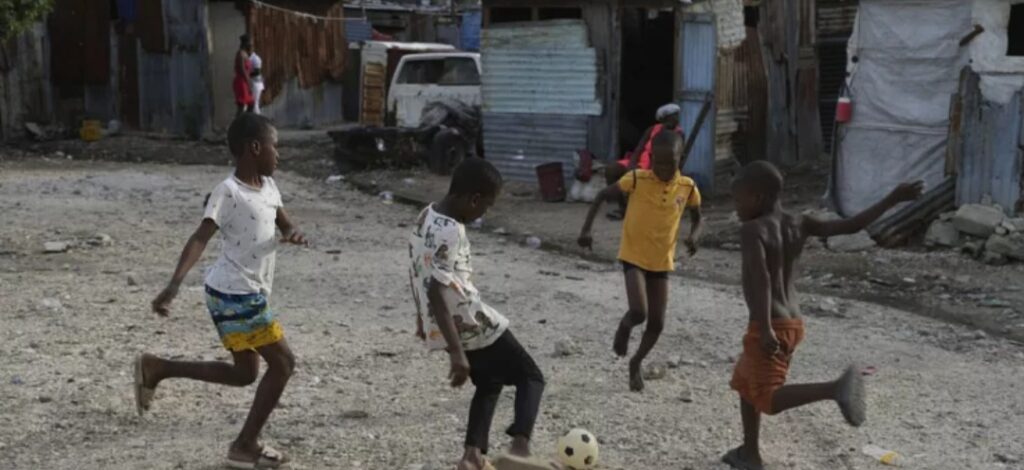
Ofure Akhigbe
The drone strike that killed at least eight children in Cité Soleil on Saturday has unleashed grief and outrage in Haiti and renewed questions about the state’s use of explosive drones in densely populated communities.
Relatives and residents described the devastation that struck the gang-controlled slum of Port-au-Prince late on Sept. 21. “They were filling the time before going to sleep,” recalled Michelin Florville, who lost his grandchildren, aged three and seven. “When I arrived, I saw the bodies on the ground.” Six other children were left seriously wounded, according to witnesses and human rights activists.
The attack occurred in an area under the control of Viv Ansanm, a coalition of armed groups designated a foreign terrorist organization by the United States. The National Human Rights Defence Network (RNDDH) said on Monday that the strike appeared aimed at suspected gang leader Albert Steevenson, known as Djouma, who was distributing gifts to children during a birthday celebration. The group reported that three civilians and four suspected gang members also died, while seven gunmen were injured.
The use of explosive drones has stirred widespread criticism. On Monday, RNDDH accused the authorities of deploying “kamikaze drones” without safeguards, while analysts questioned why the government has remained silent. “It raises urgent questions of accountability,” said Romain Le Cour of the Global Initiative Against Transnational Organized Crime in comments published the same day. “Failure to explain who authorized the strike will only reinforce the gangs’ anti-government narrative.”
Residents, meanwhile, expressed raw anger and despair on Monday. In one case, a mother displayed a video of her eight-year-old daughter lying in a pool of blood. “The state has abandoned us,” another resident lamented, saying the government had chosen “bombs instead of protection.”
International reactions have also followed. On Tuesday, Canadian officials and legal experts raised concerns about the legality of Haiti’s drone operations, noting they fall outside the oversight of the National Police. A special task force created earlier this year has been carrying out such strikes with little transparency, fueling fears of civilian harm.
The political fallout could be significant. On Monday, gang leader Jimmy Chérizier, known as Barbecue, vowed revenge, a move analysts warned could spark further bloodshed. With gangs already controlling large parts of Port-au-Prince, the killings risk further eroding public trust in the transitional government.
The attack comes as private security firm Vectus Global, owned by former U.S. Navy SEAL Erik Prince, prepares to deploy nearly 200 contractors to Haiti under a year-long deal. They are expected to reinforce Haiti’s overstretched police force and assist Kenyan officers leading a United Nations-backed mission against gangs.
For many in Cité Soleil, however, Saturday’s tragedy underscores the cost of militarized solutions. “Children are paying the price,” an activist said on Monday. “And nobody has claimed responsibility.”
